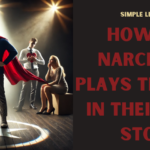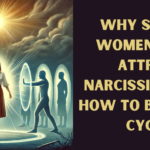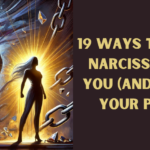
Narcissists have a unique way of shaping the world around them, often playing the hero in their own story. This may seem strange at first—after all, how can someone who is so obsessed with themselves be seen as a hero? But beneath the surface, narcissists use their inflated sense of self-importance to create a narrative where they are the central character, and everything that happens revolves around their own grandiosity. This article will explore how narcissists construct this self-centered narrative and why it is so powerful.
UnderstandingNarcissism: A Quick Overview
Narcissism isn’t about vanity or looking in the mirror too much. It’s a psychological trait that involves an excessive need for admiration, a lack of empathy, and a strong sense of entitlement. While some narcissistic tendencies are a normal part of human behavior, those with Narcissistic Personality Disorder (NPD) exhibit these traits in extreme forms.
Narcissists typically seek admiration and validation from others. They crave to be seen as extraordinary, even if they have to manipulate reality to maintain their inflated self-image. In this endeavor, they often position themselves as the hero, the one who can do no wrong, the individual who is always at the center of every situation, good or bad.
The Narcissist’s Story: A Tale of Self-Glorification
When a narcissist tells their story, the narrative is almost always about their triumphs, struggles, and unshakable greatness. They create a story in which they are the hero—always rising above the challenges they face, overcoming adversity, and achieving success unmatched by anyone else. The problem is that in this narrative, the narcissist is rarely shown in a poor light. Their vulnerabilities are hidden, and their flaws are ignored in favor of portraying themselves as someone worthy of admiration.
Narcissists play the hero by framing every interaction, situation, or event in a way that highlights their positive traits, while downplaying or completely ignoring their negative behaviors. It is not uncommon for them to exaggerate their accomplishments, and sometimes even invent events to fit their story. They need the validation that comes with being the “star” of their own narrative, and they will go to great lengths to ensure that their story reflects the image they want others to see.
The Manipulative Side of Narcissism: How They Control the Narrative
Manipulation is one of the most important ways narcissists fashion themselves as heroes. By controlling the flow of information and presenting only certain parts of the story, they ensure that others see them in the light they desire. This manipulation can take many forms:
- Selective Memory: Narcissists often have selective memory, and they easily forget things that don’t fit into their heroic narrative. If they say or do something hurtful, they may reframe the situation to make it seem like they were the one who was wronged or misunderstood. By omitting details or twisting the truth, they ensure that their story makes them look good.
- Victim: When things go wrong, narcissists are quick to play the victim. They will put themselves in the position of being the one who was treated unfairly or misunderstood, even if their actions caused the problem in the first place. By portraying themselves as the victim, they can shift blame away from themselves and maintain their status as heroes.
- Exaggeration and Lies: Narcissists are known for exaggerating their accomplishments and making up stories to make themselves seem more impressive. This may include embellishing their role in a project, inflating their success, or telling tall tales about their past. These lies feed their need for admiration and help them maintain their hero image.
- Manipulating Others: Narcissists may resort to manipulating others to control their perception of a situation. They twist facts, deny reality, or manipulate their words to make others question their own experiences. This allows narcissists to keep the narrative firmly under their control and ensure that they come off as the hero, regardless of what actually happened.
Read also: 5 Things You Should Never Expect from a Narcissist
Why Narcissists Need to Play the Hero
Narcissists’ need to play the hero is linked to their deep insecurities. Despite their outward confidence and swagger, narcissists often have fragile self-esteem that relies on the admiration and validation of others. They need to feel superior to others and maintain the illusion of perfection. Playing the hero gives them a sense of purpose and importance, and protects them from facing their own weaknesses and flaws.
When a narcissist portrays himself as a hero, he is seeking validation from others. He wants people to look up to him, admire him, and acknowledge his greatness. This feeds his ego and makes him feel special and irreplaceable. Without this external validation, his sense of self-worth is threatened, and he may become agitated, defensive, or even angry.
Hero Complex: Delusion of Grandeur
A narcissist’s “hero complex” is often a delusion. In reality, his actions are often selfish and manipulative, rather than truly heroic. They may help others, but only when it serves their own interests or enhances their image. True heroes act altruistically, motivated by compassion, empathy, and a desire to help others. Narcissists, on the other hand, are driven to appear heroic in order to maintain their image and gain admiration.
This hero complex can be harmful to others as well. When a narcissist plays the hero, they can overshadow the accomplishments of others, undermine those around them, and even take credit for things they didn’t do. They often create an environment where others feel invisible or unimportant because the narcissist constantly needs to be the center of attention.
Consequences of Narcissistic Heroism
While narcissists may bask in the glory of their self-made heroism, their behavior often leads to negative consequences for themselves and those around them. Narcissistic heroism can strain relationships, destroy trust, and create a toxic environment. Here’s how:
- Alienate Others: Narcissists often alienate people by constantly focusing on themselves and their accomplishments. They may belittle others, ignore their needs, or take credit for other people’s work, all in their quest for self-glorification. Over time, this can lead to resentment, isolation, and even the loss of important relationships.
- Inability to accept criticism: Because narcissists see themselves as idealistic and heroic, they often struggle to accept criticism or take responsibility for their mistakes. This makes it difficult for them to grow or learn from their experiences, and they may continue to repeat the same harmful behaviors without ever addressing the underlying issues.
- Emotional exhaustion: Those who deal with narcissists often feel emotionally drained. Constantly hearing about the narcissist’s “heroic” accomplishments, dealing with their manipulations, and trying to maintain a relationship with someone who is always focused on themselves can be exhausting.
- Impact on mental health: Being in the presence of a narcissist who constantly plays the hero can take a toll on mental health. It can lead to feelings of inadequacy, frustration, and confusion. People around the narcissist may begin to question their self-worth, as the narcissist’s inflated self-image overshadows their contributions and accomplishments.
How to Deal with a Narcissist Who Plays the Hero
If you find yourself dealing with a narcissist who constantly plays the hero, it’s important to set boundaries and protect your emotional well-being. Here are some strategies for coping:
Set boundaries: Narcissists thrive on manipulating others, so setting clear boundaries is essential. Be assertive about asserting your needs and refuse to tolerate manipulative behavior.
Don’t get involved in their drama: Narcissists thrive on attention, so try not to get sucked into their constant need for validation. Avoid engaging in their stories or giving them the attention they crave.
Seek support: Dealing with a narcissist can be emotionally draining. It’s helpful to have a support system in place, whether it’s friends, family, or a therapist, to help you work through the challenges.
Know when to walk away: Sometimes, the best way to deal with a narcissist is to walk away. If their behavior is toxic and damaging to your health, cutting ties may be the healthiest option.
Final Thoughts
A narcissist’s ability to play the hero of their own story is a defense mechanism, a way for them to maintain their fragile ego and seek validation from others. While it can be tempting to buy into their narrative, it’s important to remember that their “heroism” is often a facade. True heroes are selfish and humble, while narcissists are driven by a need for admiration and control. Recognizing the signs of narcissism and understanding the dynamics at play can help you manage your interactions with narcissists more effectively and protect your sense of self.
See also: Busting the 7 Biggest Myths About Narcissistic Personality Disorder (NPD)




